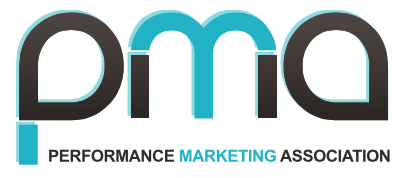Affiliates Sued By Merchants for False Advertising
Two cases were recently heard by the United States District Court for the Southern District of New York. Both were filed by merchants against affiliates who promoted competing merchants. Both allege violations of New York state law as well as the federal Lanham Act. Although the fact patterns were very different, both cases signify that merchants may have a case against affiliates who promote their competitors under specific instance, even (or in spite of) when the affiliates use proper FTC disclosures.
Neither case has reached a final disposition, but it is important for affiliate marketers to understand the underlying issues in the cases and how they relate to their own potential liability.
Casper Sleep v Jack Mitcham and Mattres Nerd LLC
Mitcham was a publisher who reviewed mattresses on his website, including both merchants with affiliate links and without. Mitcham was formerly an affiliate of Casper but was no longer. Casper sued for violations of the Lanham Act as well New York Business Law, alleging that Mitcham implied that his reviews were unbiased when they were actually contingent upon affiliate commissions. The court granted Mitcham’s motion to dismiss some of the claims but denied on the rest. The court held that the reviews could have diverted sales from Casper and thus Casper may have suffered “economic or reputational injury.”
Mitcham’s site included a general Affiliate Disclaimer on his sidebar that fully explained that his site included links for which he would be paid a commission. The disclaimer included the language “I have not been paid to write any of these articles” and “I can act as a brand-agnostic and retailer-agnostic salesman.” He also included a disclaimer at the bottom of each page as well as his “About Us” page.
The court said that Casper could proceed with the suit relying on the FTC guidelines as a basis for asserting false advertising under the Lanham Act. Although the Lanham Act does not impose an affirmative duty of disclosure, the New York Business Law does. Mitcham adequately disclosed that he was an affiliate of some of the brands but not all of them. However, where Mitcham compared 3 merchants and updated his post to lower Casper’s ranking after Casper terminated their affiliate relationship but Mitcham failed to take out language saying he was an affiliate for all 3, the court held that Casper had a cause of action. The court held similarly where Mitcham reviewed Casper and included links to competitors and disclosed that he would get paid a commission “if you purchased anything from them” because consumers might believe that Mitcham had the same financial interest in all of the companies.
Enigma Software Group v. Bleeping Computer
ESG developed computer security products. Bleeping operated a computer support website that included affiliate links for ESG’s competitors but not ESG. Bleeping’s site included a forum with staff members designated as experts. ESG alleged that Bleeping made “false, inaccurate, misleading and disparaging statements” about ESG in an effort to instead encourage users to click through the competitor’s affiliate links so that Bleeping would earn a commission. ESG brought suit for defamation and trade libel under New York law as well as false advertising under the Lanham Act.
The court held that ESG adequately pled each element of a defamation claim but not trade libel. The more pertinent part of the case involved the claims under the Lanham Act. The court held that because Bleeping recommended consumers to remove ESG in favor of products with affiliate links, the forum posts were commercial speech made to influence the consumers to buy products in which Bleeping had a financial stake.
ESG did not need to show that Bleeping was a direct competitor (thanks to the U.S. Supreme Court decision Lexmark International, Inc. v. Static Control Components, Inc., 134 S. Ct. 1377 (2014)). ESG sufficiently pled that Bleeping’s statements were false or misleading, influenced purchasing decisions of consumers, were placed into interstate commerce, and resulted in ESG suffering monetary and reputational injury.
From a procedural standpoint, this does not mean that the affiliates were held liable but rather that the courts would not dismiss the suits outright as the affiliates requested. At this point in the proceedings, the courts had to accept all of the facts alleged by the complaining merchants as true. From here we will have to see how the cases progress with potential trials. We will update our members as we learn more.
The PMA has several resources available pertinent to these cases including Blogging and New Media Disclosure Information and Resource Guide for Affiliate Managers.

 Follow
Follow